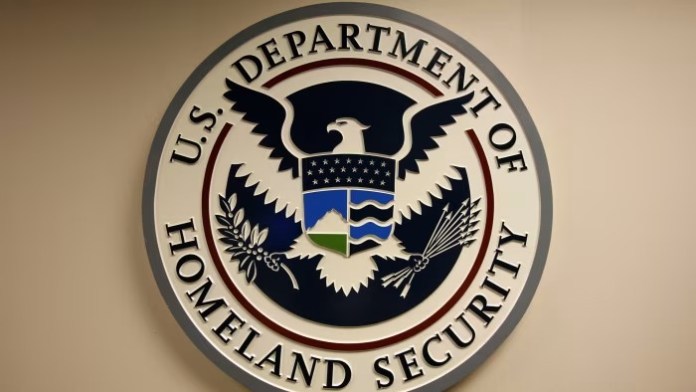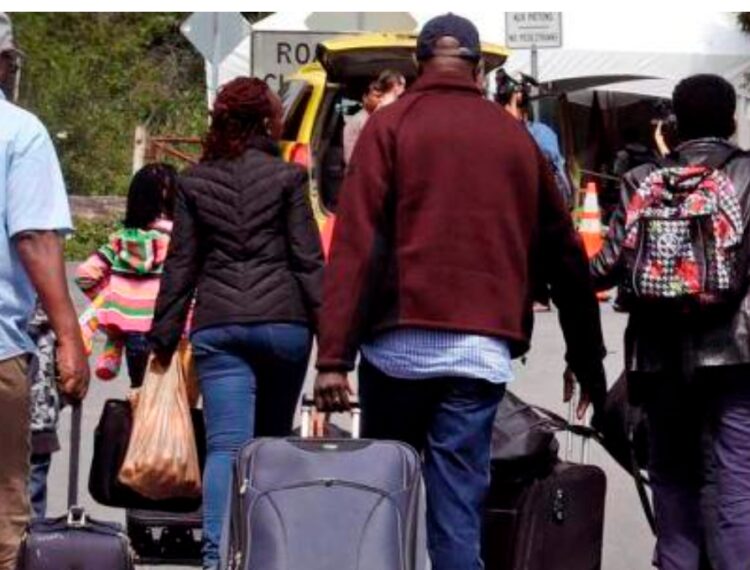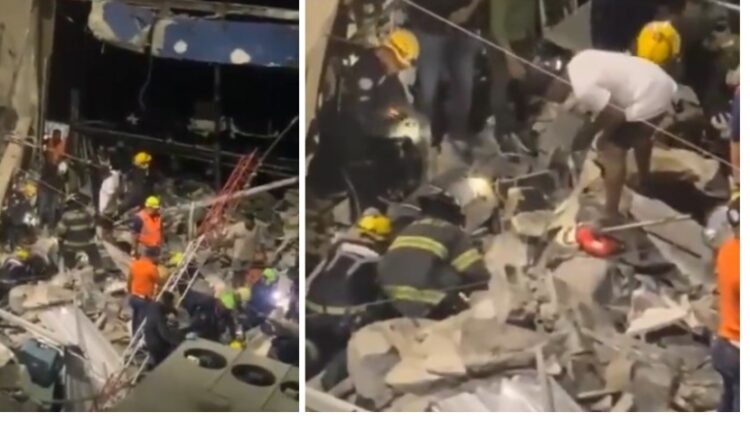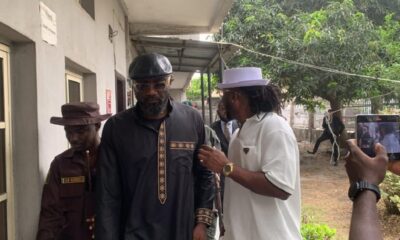News
Court Dismisses Bobrisky’s Fundamental Rights Suit Against EFCC

A Federal High Court in Lagos has dismissed a fundamental rights suit filed by Okuneye Idris Olanrewaju, popularly known as Bobrisky, against the Economic and Financial Crimes Commission (EFCC).
Bobrisky had sought N200 million from the EFCC for “psychotic trauma” and demanded N1 billion from the National Assembly for the “violation of his right to a fair hearing.”
He also urged the court to restrain the EFCC and the National Assembly from “harassing, detaining, or declaring him wanted.”
Bobrisky has been embroiled in controversy after social media influencer Martins Otse leaked an audio recording alleging that he paid the EFCC N15 million to drop money laundering charges against him.
Delivering judgement on the case, Justice Alexander Owoeye ruled on November 28, that Bobrisky’s claims of rights violations lacked merit and were unsupported by credible evidence.
The EFCC’s spokesman, Dele Oyewale, disclosed this in a statement on Friday.
“Having evaluated the evidence placed before this Court by the Applicant, it is evident that the Applicant has failed to provide credible evidence to justify the award of the declaratory and injunctive reliefs sought by him,” the judge ruled.
“I hold that the claims of violation of fundamental rights against the 1st and 2nd Respondents were not made out of the affidavit evidence placed before this Court.
“The Applicant’s claims against the 1st and 2nd Respondents lack merit and are accordingly dismissed.”
Justice Owoeye also refused to award damages against the EFCC.
News
US revokes more than 500 foreign student visas

No fewer than 500 foreign students have had their US visas revoked in recent weeks, as Donald Trump’s administration doubles down on its crackdown on universities.
Nafsa, a network of universities and individuals engaged in international education and exchanges, told the Financial Times on Tuesday it had identified 500 visa revocations by compiling reports from higher education institutions across the US.
“This is uncharted territory on so many levels,” Fanta Aw, chief executive of Nafsa said. “It’s at an unprecedented level and it’s quite concerning because there is a lack of clarity which is creating anxiety.”
The Department of Homeland Security and the Department of State are implementing a wave of actions against university students across the country. Institutions are often unaware that their students have been targeted so cannot easily track their cases or offer support.
The state department’s visa revocations require students to leave the US and reapply for visas after fresh scrutiny. Separately, the homeland security department has triggered “status termination”, Aw said. In both cases, she added, the processes for appeal were unclear.
“There will be a tsunami of legal cases coming,” she warned.
Multiple reports have arisen of foreign students and university employees being taken to detention centres and subsequently facing deportation.
A number of universities have issued warnings to students and faculty against travelling abroad for fear of arbitrary questioning or detention on returning to the US.
Aw said reports of visa revocations had spiralled from students at elite universities — including Stanford, Harvard and Columbia — to a far wider range of higher education institutions across the country. They targeted many different nationalities for a variety of reasons, including for traffic violations.
Since Trump’s election, a growing number of US-based faculty have sought jobs elsewhere, and increasing numbers of high school and college students are applying to universities abroad.
The Central European University in Vienna on Tuesday said US applicants for its programmes in the upcoming academic year had jumped one-quarter, while the University of Toronto reported a “meaningful” rise compared to past years.
On Monday, 16 associations of US universities called for a briefing from the homeland security and state departments, after uncoordinated orders from the authorities requested students to “self-deport”.
The group said the orders contained “no additional information about how to appeal this decision or verification to ensure that mistakes are not being made in identifying these individuals”.
The association warned of the implications for the country given the 1mn international students attending US colleges and universities, who contributed an estimated $43.8bn to the economy, created 375,000 domestic jobs and contributed “to institutions’ intellectual vibrancy and the global literacy of domestic students”.
The homeland security department did not reply to a request to comment.
News
Japa: Nigeria loses $366m as 16,000 doctors move abroad

The Coordinating Minister of Health and Social Welfare, Prof Muhammad Pate said over 16,000 Nigerian doctors have left the country in the last five to seven years to seek greener pastures in other countries.
Prof Pate also said the doctor-to-population ratio is now 3.9 per 10,000 in the country, while the estimated cost of training one doctor exceeds $21,000.
This was as he lamented that nurses and midwives who left have also thinned the number of healthcare workers in the country.
The minister disclosed this at the seventh annual capacity building workshop of the Association of Medical Councils of Africa in Abuja on Tuesday with the theme, “Integrated healthcare regulation and leadership in building resilient health systems.”
According to him, an increasing number of Nigeria’s talented healthcare professionals aspire to work in other countries, driven by factors such as economic opportunity, better working conditions, more advanced training, and superior research environments abroad.
He said the migration of health professionals from developing countries is not new, but it has accelerated in recent years.
“In Nigeria alone, over 16,000 doctors are estimated to have left the country in the last five to seven years, with thousands more leaving in just the past few years. Nurses and midwives have also thinned in numbers. The doctor-to-population ratio now stands at around 3.9 per 10,000—well below the suggested global minimum.
“But this trend is not just about people leaving. It represents a fiscal loss.
The estimated cost of training one doctor exceeds $21,000—a figure that reflects the magnitude of public financing walking out of our countries. It deeply affects our health systems—leaving many of our rural communities critically underserved.”
He, however, emphasised that the phenomenon offers an opportunity to rethink and reshape the policies, to manage the valuable health workforce in ways that benefit our countries first and foremost.
“In Nigeria, guided by the vision of President Bola Ahmed Tinubu, who was appointed by African Heads of State as the AU’s Continental Champion for Human Resources for Health and Community Health Delivery—we are pursuing a new direction. His vision is that Nigeria becomes a prosperous, people-oriented country, contributing to a peaceful and thriving continent. Not a standalone Nigeria, but a Nigeria that is interlinked with all our neighbours and sister countries. Under the Renewed Hope Agenda, and within the framework of the Nigeria Health Sector Renewal Investment Initiative, we have embraced a new path—combining strategic realism with visionary ambition.
“The National Policy on Health Workforce Migration is a cornerstone of this path. It is designed to address health workforce migration with dignity—dignity for health workers, for the country, and for the profession. It is data-driven, evidence-guided, and signals a clear direction. This is not a restrictive policy, nor is it one born out of resignation. We understand that the global health workforce shortage is at 18 million, and countries in the Global North face their own human resource crises due to demography and other factors. But our response is based on stewardship—balancing the rights of health professionals to seek opportunities abroad with our duty to protect the integrity and viability of our national health system.
“The objectives are clear. To retain and motivate health workers currently serving in Nigeria—thousands of whom work under difficult conditions; to establish ethical norms and explore bilateral frameworks for recruitment, aiming to correct global asymmetries; to expand training capacity—not only for domestic needs, but to contribute to global workforce needs, to enable structured reintegration for the thousands of Nigerian professionals abroad; and to strengthen governance, improve regulatory coordination, and build real-time data systems.”
He urged Africa to lead in forging a new global compact on health workforce mobility—anchored in pan-African training and accreditation standards; shared planning tools, evidence, and data; continental negotiating platforms with destination countries; and sustained investments in the people who care for our people.
The President of AMCOA, Prof Joel Okullo, stressed the importance of collaboration among African countries to tackle healthcare challenges and improve regulation and leadership across the continent.
He expressed the belief that the outcome of the workshop would produce actionable strategies to improve healthcare services across Africa.
“This year’s theme highlights our commitment to tackling the diverse array of challenges within the health regulatory landscape. It seeks to empower AMCOA members and associate members with the wisdom and skills needed for informed strategic and operational decisions in the coming year.
“In this intricate regulatory tapestry, our discussions will illuminate strategies and insights that will bolster regulators’ capabilities. Our focus will revolve around managing health workforce mobility, improving credentialing and information data management systems
“Let us embark on this journey with enthusiasm and a shared sense of purpose. Our collaborative efforts today and over the next few days will lay the groundwork for transformative changes that will resonate across the healthcare landscape of Africa,” he noted.
The Registrar of the Medical and Dental Council of Nigeria, Dr Fatima Kyari, while welcoming participants to the event, noted that it was Nigeria’s first AMCOA workshop while commending the alignment of leadership towards the shared goal of patient safety.
The Board Chairperson of MDCN, Prof Afolabi Lesi highlighted the need for healthcare regulators to uphold global standards while adapting to local contexts.
Lesi, who is also the Chairman of the Local Organizing Committee for the workshop addressed the challenges of fragmented professional relationships that hinder implementation and compromise patient care.
“The reality is that while we have committed and clear directions at the level of governance, implementation of actions is bedeviled by the fractioned and fractious relationship among health workers who ought to be working as a team, with the patient (well-being and safety) as the primary focus of all our actions,” he said.
Photo caption: Members of AMCOA; the Registrar of MDCN, Dr Fatima Kyari; the Board Chairperson of MDCN, Prof Afolabi Lesi; the Coordinating Minister of Health and Social Welfare, Prof Muhammad Pate; the Minister of State of Humanitarian Affairs and Poverty Reduction, Dr Yusuf Sununu; and other AMCOA members.
News
SAD! Roof Collapses At Nightclub Kills 44, Including province Gov

The roof of the iconic Jet Set nightclub in Santo Domingo collapsed during a merengue concert, leaving at least 44 people dead and 160 injured.
The venue, which was filled with politicians, athletes, and other guests, became the site of devastation as rescue crews worked tirelessly to find survivors in the rubble, according to AP News.
Juan Manuel Méndez, director of the Centre of Emergency Operations, confirmed that search efforts continued.
“We presume that many of them are still alive, and that is why the authorities here will not give up until not a single person remains under that rubble,” he said.
Rescue workers spent hours clearing debris, determined to reach those trapped beneath the ruins.
By the afternoon, the death toll had risen to 44, with rescue teams still pulling survivors from the wreckage. Amid the chaos, the noise of drills and machinery filled the air as workers navigated through broken concrete and beams to save lives.
Among the victims was Nelsy Cruz, the governor of the northwestern province of Montecristi and sister of MLB All-Star Nelson Cruz. She had called President Luis Abinader at 12:49 a.m. to report that the roof had collapsed and she was trapped.
Cruz later died in hospital.
“This is too great a tragedy,” said First Lady Raquel Abraje, her voice choked with emotion.
Several notable figures were also injured, including former MLB pitcher Octavio Dotel, legislator Bray Vargas, and merengue singer Rubby Pérez, who was performing when the roof collapsed.
Pérez’s manager, Enrique Paulino, whose shirt was stained with blood, described how quickly the disaster unfolded.
“It happened so quickly. I managed to throw myself into a corner,” he said. “I initially thought it was an earthquake.”
The cause of the collapse remains unclear, with the nightclub expressing full cooperation with authorities. “The loss of human life leaves us in a state of deep pain and dismay,” the nightclub said in a statement.
As rescue operations continued, anxious family members gathered outside the venue, waiting for news of their loved ones. Manuel Olivo Ortiz, whose son had attended the concert, said, “We’re holding on only to God.”
Massiel Cuevas, the godmother of 22-year-old Darlenys Batista, was also waiting, firmly believing that Batista would be rescued.
“I’m waiting for her. She’s in there, I know she’s in there,” Cuevas said.
President Abinader shared his condolences on social media, stating that all rescue agencies were “working tirelessly” to assist those affected.
He later visited the scene, offering support to grieving families. “We have faith in God that we will rescue even more people alive,” Abinader told reporters.
Authorities urged the crowd to allow ambulances and rescue workers to do their jobs. At a nearby hospital, officials read aloud the names of survivors, while the National Institute of Forensic Pathology displayed photos of victims to help identify them. The search for survivors continues as hope remains.
-

 News15 hours ago
News15 hours agoOERAF held memorial lecture on conflict resolution, security/safety of community in Nigeria
-

 News20 hours ago
News20 hours agoTRADE WAR! U.S. angry over Nigeria’s import ban on 25 products
-

 News21 hours ago
News21 hours agoINTERVIEW: Introduction of Child Rights Curriculum In Nigerian Universities Will Take CRA to Families – Dr Obiorah Edogor
-

 News15 hours ago
News15 hours agoHoR Minority Caucus decries killings in Plateau, Benue states, urges immediate presidential decisive actions
-

 News53 minutes ago
News53 minutes agoUS revokes more than 500 foreign student visas
-

 News7 hours ago
News7 hours agoBandits have seized control of 64 communities in Plateau – Gov Muftwang
-

 News2 hours ago
News2 hours agoIbas picks administrators for 23 Rivers LGs(SEE list)
-

 Economy7 hours ago
Economy7 hours agoMobile Money transactions hit $1.68trn in one year

















